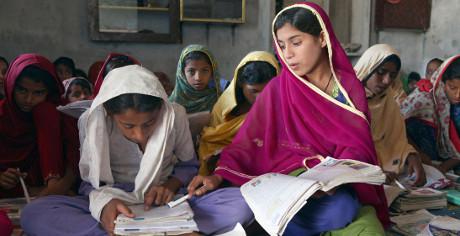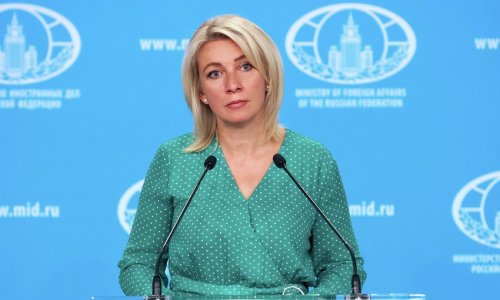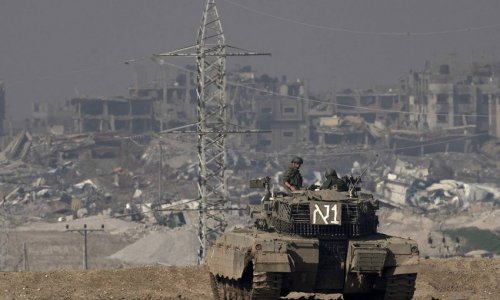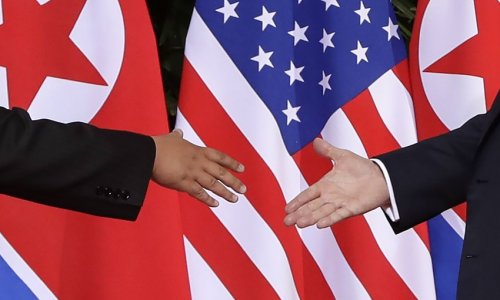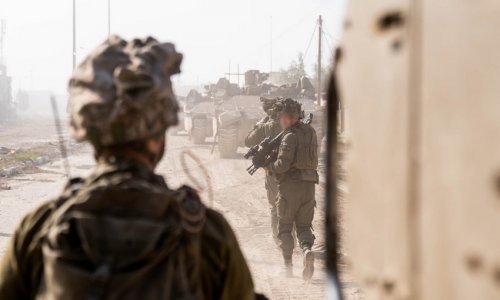Aqeela Asifi began teaching other Afghan refugees in Pakistan 23 years ago. Now, as she tells Shaimaa Khalil, some of her former pupils have started their own school. The UN has recognised Ms Asifi's dedication with the 2015 Nansen Refugee Award.
Aqeela Asifi's passion for education is evident in everything she says.
"I've always wanted to be a teacher. I was inspired by my own teachers," Ms Asifi recalls.
"I was lucky to be born in a very enlightened and liberal family. My parents were very supportive of my and my siblings' education."
It was also a different time in Afghanistan when she was growing up she said.
"Kabul was prosperous, vibrant city there was no difference in the way men and women were treated. I lived in a time in Afghanistan that many haven't seen."
Ms Asifi became a teacher of history and geography.
Chaos
Things changed when the civil war broke out and by 1992 she, her husband and her children had to flee Kabul during the siege by mujahideen Islamic guerrillas.
"The government fell and the mujahideen took over. It was complete chaos. We had to run for our lives. I left everything behind, my school, my students and my house," she says.
"It took us six years to build our house back in Kabul and I left without even packing. It was a painful time," she adds.
Ms Asifi was 26 when she arrived at Kot Chandana refugee village in Mianwali, one of the most conservative areas in Punjab province.
It was hard getting used to life as a refugee, but she said it was meeting the other refugees that was the actual shock for her.
"We were all Afghans yes. But I soon realised that the life I'd lived in Kabul and the life these people lived in other parts of Afghanistan were very different," Ms Asifi says.
"The people were generous and kind at heart but also very traditional. Girls weren't allowed to leave the house, let alone get an education."
Spreading the word
When Ms Asifi arrived at the camp not a single girl went to school. It was only for boys.
"I had to be careful not to upset this very traditional community but I also felt a moral obligation to give girls and women there the basic human right of education," she says.
Ms Asifi and her husband started talking to community elders and imams. To gain the families' trust, they went door to door spreading the word and starting a conversation about girls' education.
In the beginning, the community didn't know what to call her. There was no word for a female teacher.
"Gradually we started from a small tent in the refugee camp," she remembers. "The first lesson was home economics and personal hygiene. I wanted them to know that education was nothing to be scared of, it just helped you live your life better."
Ms Asifi says she started with only a handful of girls. But then she had to work in shifts when the number grew.
Soon she could see the change in the girls: "They were more confident and more engaged. One girl told me she offered to help her uncle keep a register of all the wool he sold.
"He laughed at her in the beginning. But then eventually, through the simple maths she learned in my tent school, she helped her uncle with basic bookkeeping. He was so impressed, he got his son to marry her."
Going home?
Now the tent school has become a permanent building and some of her former students went on to become teachers themselves.
Three of them studied until they became teenagers, then married and returned to the Afghan province of Kunduz.
"Within a month of their return they opened a school in a village there. It's been 12 years since then and that school is still running and all the girls in the village go to that school. I am very proud of that," she says.
After 23 years of educating refugee girls, Aqeela Asifi has now been given the Nansen Refugee Award by the UN refugee agency UNHCR.
"This award will help strengthen my cause. But I'm also happy to be recognised as an Afghan Muslim woman and, of course, as a teacher."
Ms Asifi said that she'd like to go back to Afghanistan in the near future.
"There are so many children there in need of education. I want to work them and open schools for them," she said.
(BBC)
www.ann.az
Follow us !

